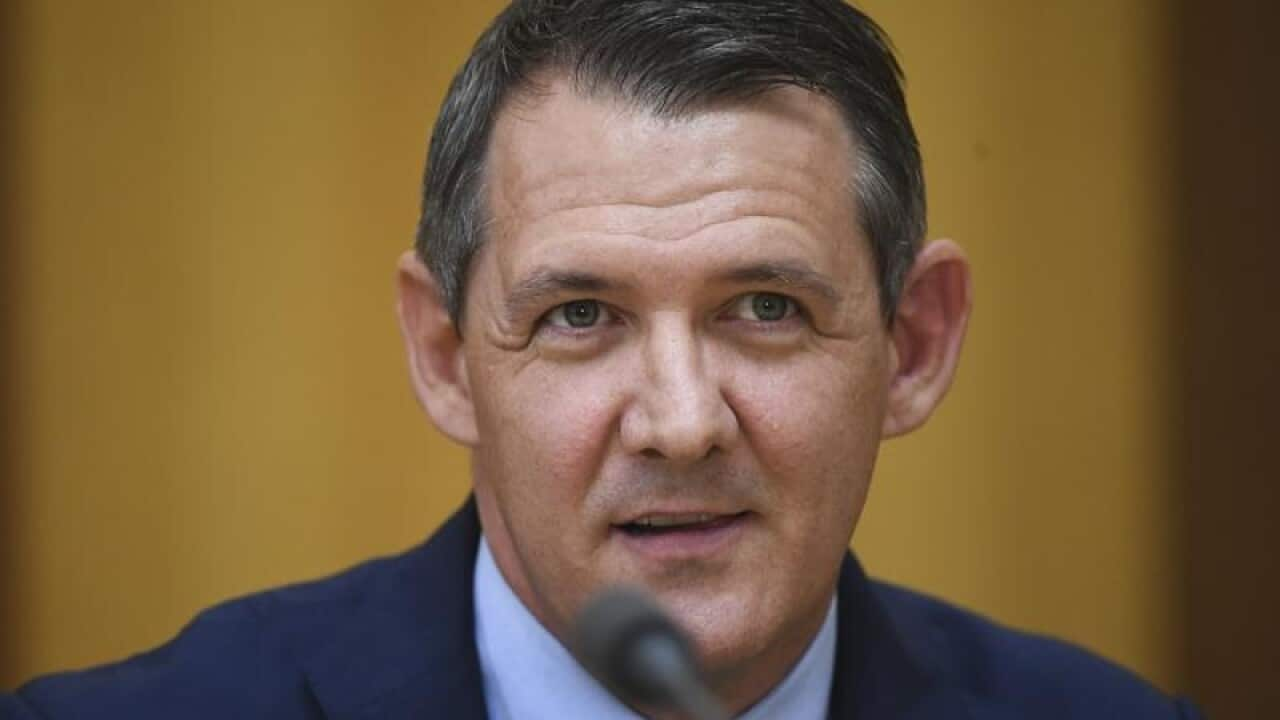Indigenous leaders have criticised Prime Minister Malcolm Turnbull and Opposition Leader Bill Shorten for being slow to act on the issue of formal recognition for Aboriginal and Torres Strait Islanders.
It comes as academic and bureaucrat Chris Sarra announced on Thursday he has resigned as co-chair of the Prime Minister’s Indigenous Advisory Council.
“When the Uluru Statement came out and was rejected there was a sense of despair,” he told NITV News.
“But we can’t think we’re going to make change by being victims, having tantrums and abusing other people. We’ve got to keep plodding forward.” Dr Sarra was hand-picked to be one of the PM’s most influential advisors on Indigenous affairs .
Dr Sarra was hand-picked to be one of the PM’s most influential advisors on Indigenous affairs .

Dr Sarra was recently appointed the head of Queensland's Department of Aboriginal and Torres Strait Islander Partnerships. Source: Justine Walpole
He said he quit in order to avoid a conflict of interest with his new role as head of Queensland’s Department of Aboriginal and Torres Strait Island Partnerships.
“I wanted to get back of doing leadership as opposed to talking about leadership,” he said.
Dr Sarra said he was ultimately optimistic that constitutional recognition for Indigenous Australians was achievable, but said believed it would likely coincide with Australia becoming a republic.
He has witnessed a major shift in engagement while he has been working with the prime minister. He said Indigenous Affairs Minister Nigel Scullion was working hard, but other frontbenchers needed to do more.
“I think we’ve significantly changed the relationship with the government and how it consults with Indigenous people,” he said.
“They’ve embraced the rhetoric of doing things with people not to people.”
Warren Mundine, the former chairman of the PM's Indigenous Advisory Council, praised Dr Sarra’s work in the role.
“It’s a really important position and that’s why a person the calibre of Chris Sarra was chosen,” he told NITV News.
He said he was not surprised that Dr Sarra had been chosen for another high-profile role.
Although Mr Mundine agreed with Dr Sarra that being able to change the rhetoric around Indigenous issues was significant, he said: “You need actions and outcomes.”
He said although there were remained a raft of Indigenous issues including health, education and housing, long-term progress has been made.
“It’s sort of a mixed bag at this stage. It was a mixed bag in my time."
‘He hasn’t made a difference’
Michael Mansell, secretary of the self-declared Aboriginal Provisional Government, said that Dr Sarra “probably woke up to the fact” he was a “token advisor”.
“He hasn’t made a difference,” he said. “The only reason the PM has an advisory body is to give the impression that he’s working with Indigenous people.”
Mr Mansell said that in his opinion Aboriginal advisory bodies often neutralised “high-profile political agitators”.
“These advisory bodies have proved over 30 years that they don’t work,” he said.
Mr Mansell said that very little had been achieved by the federal government on Indigenous affairs since the formal apology to the Stolen Generations in 2008.
“Shorten offers the best of a bad lot in the sense that he’s willing to talk about a Treaty,” he said.
“Turnbull has been an absolute disaster. His attitude towards Aboriginal people is to do nothing, lead people along and ignore them as seen by Uluru.”
'Detail and meaning' wanted, not 'promises’
Meanwhile, former Australian of the Year Galarrwuy Yunupingu has written an essay criticising both the PM and opposition leader.
At last year’s Garma Festival in northeast Arnhem Land, Mr Turnbull promised to “bring all Australians along with us” in the push for Indigenous recognition. Mr Shorten said he wanted the festival to provide “inspiration” to politicians to settle the issue. “Looking back on the year since then things have not gone to plan,” Mr Yunupingu wrote in his chairman’s essay.
“Looking back on the year since then things have not gone to plan,” Mr Yunupingu wrote in his chairman’s essay.

The Bunngul Red Flag Dancers, Garma Festival. Boys and men finding cultural strength in ceremony. Source: Yothu Yindi Foundation
“What I wanted was detail and meaning and cleverness; not words and promises and nothingness. I wanted to see words carved out in a way that they can never be lost to us. True words that reflect the truth. Words in the Constitution that lock in our sovereign rights in a real way.”
New proposals provide 'flesh on the bones'
Earlier this week, former High Court justice to show how an Indigenous Voice to Parliament could work.
"They don't ask for seats in Parliament, they don't ask for a veto, they don't ask for proportional representation, they don't even necessarily expect that every time they ask for something for the Aboriginal and Torres Strait Islander peoples that it will be accepted,” he said. “They ask for voices into Parliament."














